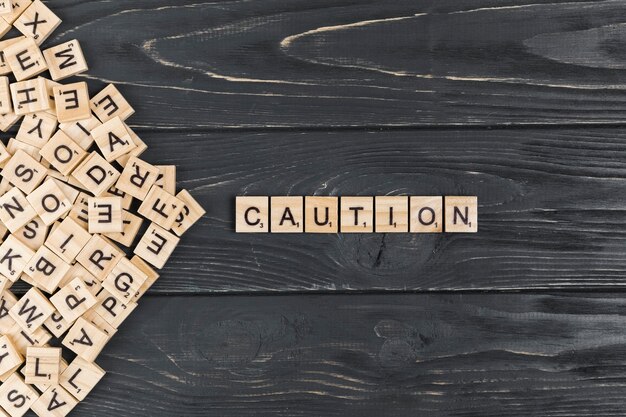
If you’re a fan of the popular puzzle game 7 Little Words, you might’ve come across the term “drudgery” as a clue. And if you’re here, chances are you’re curious to learn more about this word, how it fits into the game, and perhaps some handy strategies for solving it. Let’s dive into everything you need to know about “drudgery” in 7 Little Words to improve your puzzle-solving skills!
What is 7 Little Words?
Before we get into the specifics, let’s quickly cover what 7 Little Words is. This popular mobile and online game combines elements of crosswords, word finds, and word scrambles. Each puzzle has seven clues, and each clue has a different answer that the player has to figure out by putting together letter segments.
One of the charms of 7 Little Words is that it encourages players to think critically and expand their vocabulary. And, occasionally, a tough word like “drudgery” comes along!
What Does “Drudgery” Mean?
“Drudgery” refers to hard, dull, and monotonous work. It’s the kind of work that can feel repetitive, boring, and exhausting—think chores like scrubbing floors, data entry, or other tasks that don’t bring much enjoyment. But in 7 Little Words, “drudgery” is more than just a vocabulary word; it’s a clue that needs solving!
In the context of 7 Little Words, you may come across the word “drudgery” as a clue, hinting at an answer related to tasks or activities that require continuous, tiring work without much variety or excitement.
Why Does “Drudgery” Appear in 7 Little Words?
7 Little Words uses a wide variety of vocabulary, from common words to more challenging terms, to test players’ knowledge and reasoning. Words like “drudgery” appear because they add an extra layer of difficulty to the puzzle, especially for those who may not be as familiar with less common English words. Encountering these tougher words can make the game more exciting and educational.
Tips to Solve Drudgery and Similar Clues in 7 Little Words
Here are some strategies to help you solve “drudgery” and other challenging words in 7 Little Words:
- Break Down Letter Segments: In 7 Little Words, each word clue is solved by combining several segments of letters. Look at the segments available and try to identify any that seem to match the letters in “drudgery.”
- Focus on Synonyms: Sometimes clues in 7 Little Words aren’t the exact word you need to solve. For example, “tedious work” could be a clue for “drudgery.” Familiarizing yourself with synonyms like “toil,” “labor,” or “grunt work” can help you recognize answers more quickly.
- Use Context: Think about the theme of the puzzle. If the other words relate to work, labor, or daily tasks, there’s a good chance “drudgery” might pop up as an answer.
- Practice with Vocabulary Games: Expanding your vocabulary with other games, flashcards, or word-of-the-day lists can sharpen your skills and help you recognize tricky words like “drudgery” on sight.
- Use a Hint Wisely: Some versions of 7 Little Words offer hints if you’re really stuck. Use them sparingly and only when you’ve tried to work through the puzzle on your own first. This helps you learn and retain new words better.
- Take Breaks and Come Back Later: If you’re stumped on a word like “drudgery,” take a short break. Sometimes stepping away and returning with a fresh mind helps you spot connections you might have missed.
The Fun and Value of Learning Words Like Drudgery
Encountering words like “drudgery” in puzzles is part of what makes 7 Little Words so engaging. Learning new words enhances your vocabulary and helps you communicate more precisely. You can also use words like “drudgery” in everyday conversation when describing tasks that feel endless or tiresome. Expanding your vocabulary while playing a fun game is a great example of learning while doing something enjoyable!
Conclusion
In drudgery 7 little words can represent both a puzzle challenge and an opportunity to learn a new word. Understanding its meaning as dull, repetitive work can help you make sense of this clue and similar ones. Remember to use strategies like breaking down letter segments, focusing on synonyms, and taking hints when necessary. By doing so, you’ll not only crack the puzzle but also enrich your vocabulary—making you a better and faster problem-solver for future puzzles.
FAQs
Q: What does “drudgery” mean in everyday language? A: “Drudgery” refers to repetitive, boring, and physically or mentally exhausting work. It’s the kind of task that most people find dull and unappealing, like house chores or monotonous office work.
Q: How often does “drudgery” appear as a clue in 7 Little Words? A: The frequency varies depending on the puzzle set, but “drudgery” is just one example of the game’s more challenging vocabulary. Puzzles are updated regularly, so similar challenging words may appear frequently.
Q: Are there any hints available in 7 Little Words? A: Yes, some versions of the game offer hints to help players solve tough clues. However, using hints sparingly can help improve your problem-solving skills over time.
Q: Can playing 7 Little Words help improve my vocabulary? A: Absolutely! 7 Little Words introduces players to new words and meanings, making it a great game for expanding your vocabulary in a fun way.
Q: What are some synonyms for “drudgery”? A: Some synonyms include “toil,” “labor,” “grunt work,” “hardship,” and “slog.” Familiarizing yourself with these can also help when solving puzzles.
Q: What should I do if I’m stuck on a word like “drudgery” in the game? A: Take a break, try focusing on other clues, or use a hint if available. Returning with a fresh mind can sometimes help you solve the tricky word right away.


